15 Egg Cooking Methods That Ruin The Health Benefits
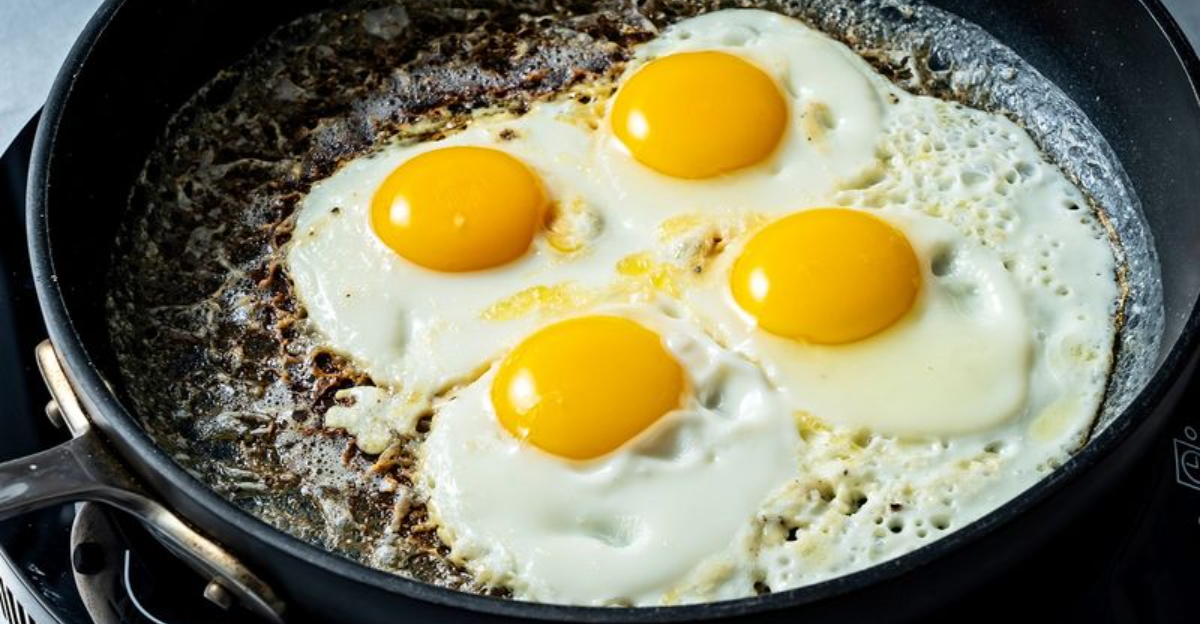
Eggs are powerhouses of protein, vitamins, and healthy fats—nature’s original superfood in a shell. But how they’re cooked can change everything, turning something wholesome into a greasy, over-salted mess.
It’s not just about taste—it’s about keeping the good stuff in and the bad stuff out. Some cooking habits sneak in extra calories or strip out nutrients without us even noticing.
1. Deep-Frying In Heavy Oil
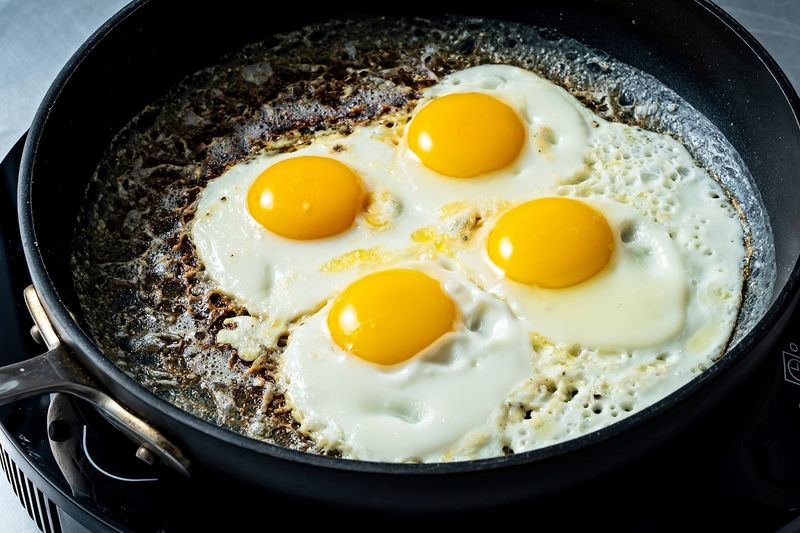
A golden crust might look tempting, but submerging eggs in hot oil adds layers of fat your body doesn’t need.
The high temperatures can also break down delicate nutrients like vitamin D and omega-3s. Try a soft boil or poach instead for richness without the grease.
2. Drenching With Processed Cheese
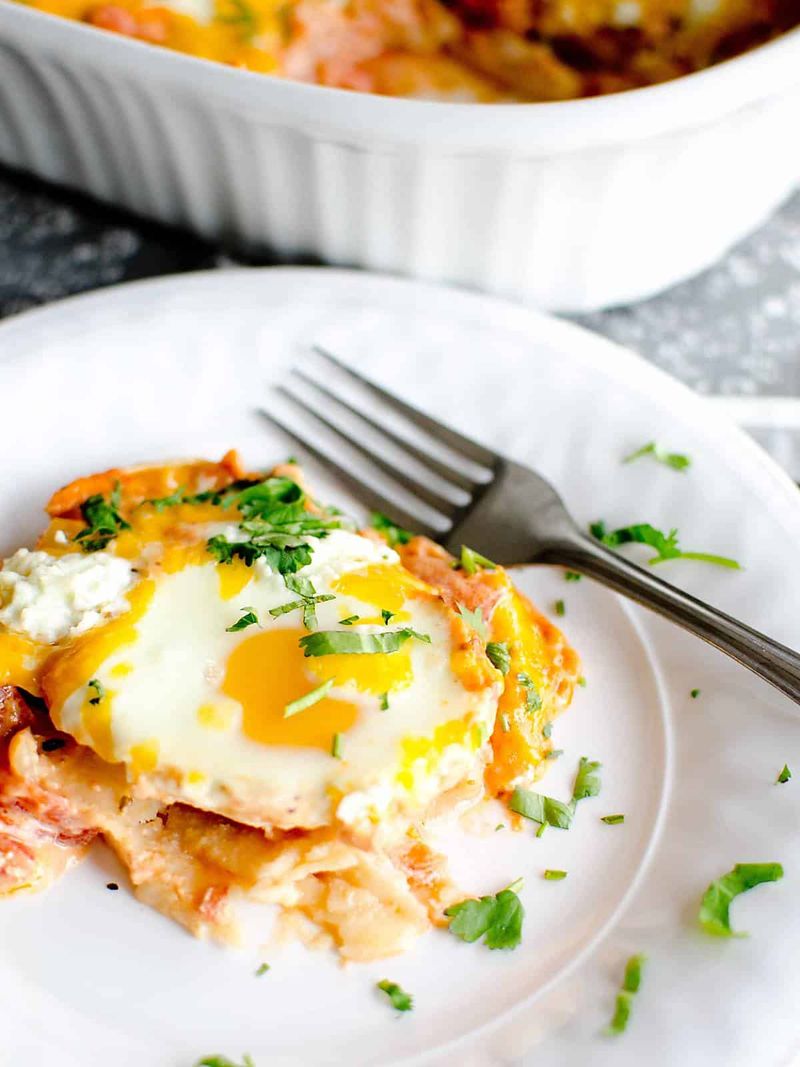
Melty cheese can be a comfort-food classic, but many processed varieties bring more sodium and saturated fat than flavor.
The egg’s natural creaminess gets buried under a blanket of artificial ingredients. A sprinkle of real cheddar or a dusting of parmesan goes a long way.
3. Scrambling In Too Much Butter
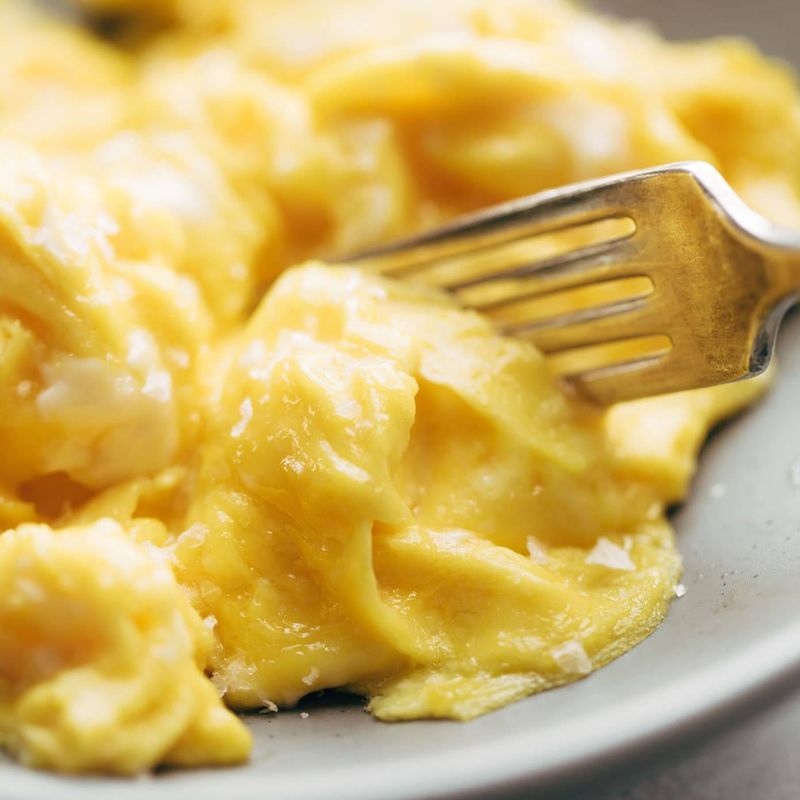
Butter gives scrambled eggs that rich, diner-style flavor—but it’s easy to go overboard. Extra tablespoons mean extra saturated fat, which can edge out the heart-health benefits of the eggs themselves.
A light olive oil or nonstick pan can keep things creamy without drowning them.
4. Cooking With Bacon Fat
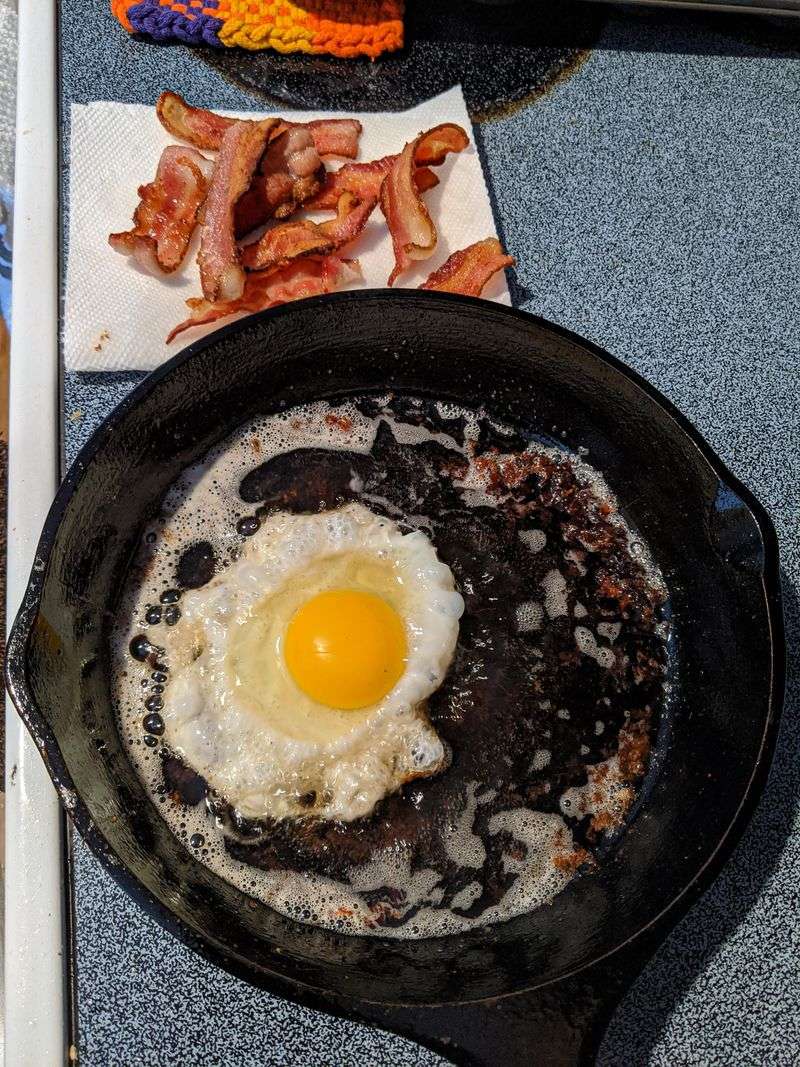
Using bacon drippings to fry eggs might sound old-school Southern, but it loads the dish with added cholesterol and salt.
The smoky flavor takes over, and the egg becomes more of a sidekick. If you love that savory edge, try smoked paprika or turkey bacon crumbles instead.
5. Making Creamy Hollandaise Every Morning
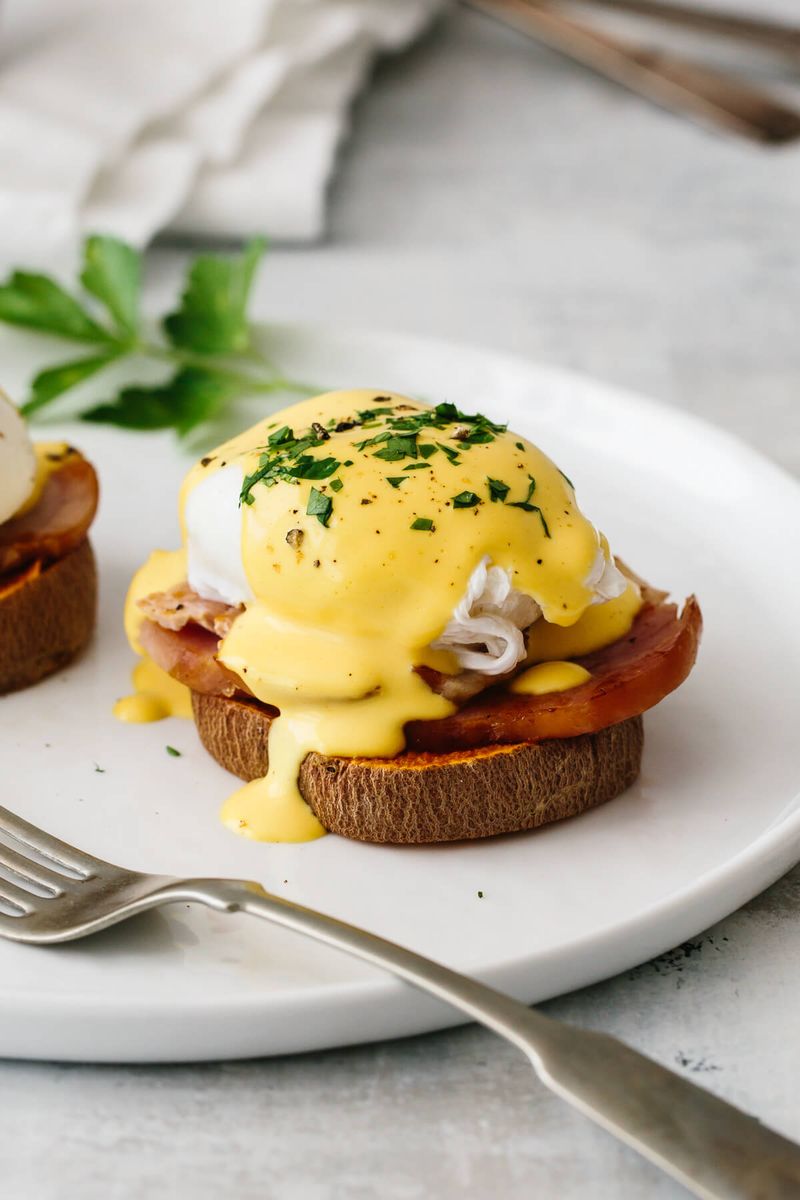
Classic eggs Benedict feels fancy, but hollandaise sauce is basically butter and yolk whipped together.
Rich and silky, yes—but not something your arteries want daily. A lemony yogurt drizzle offers tang without all the weight.
6. Overcooking Until Rubbery
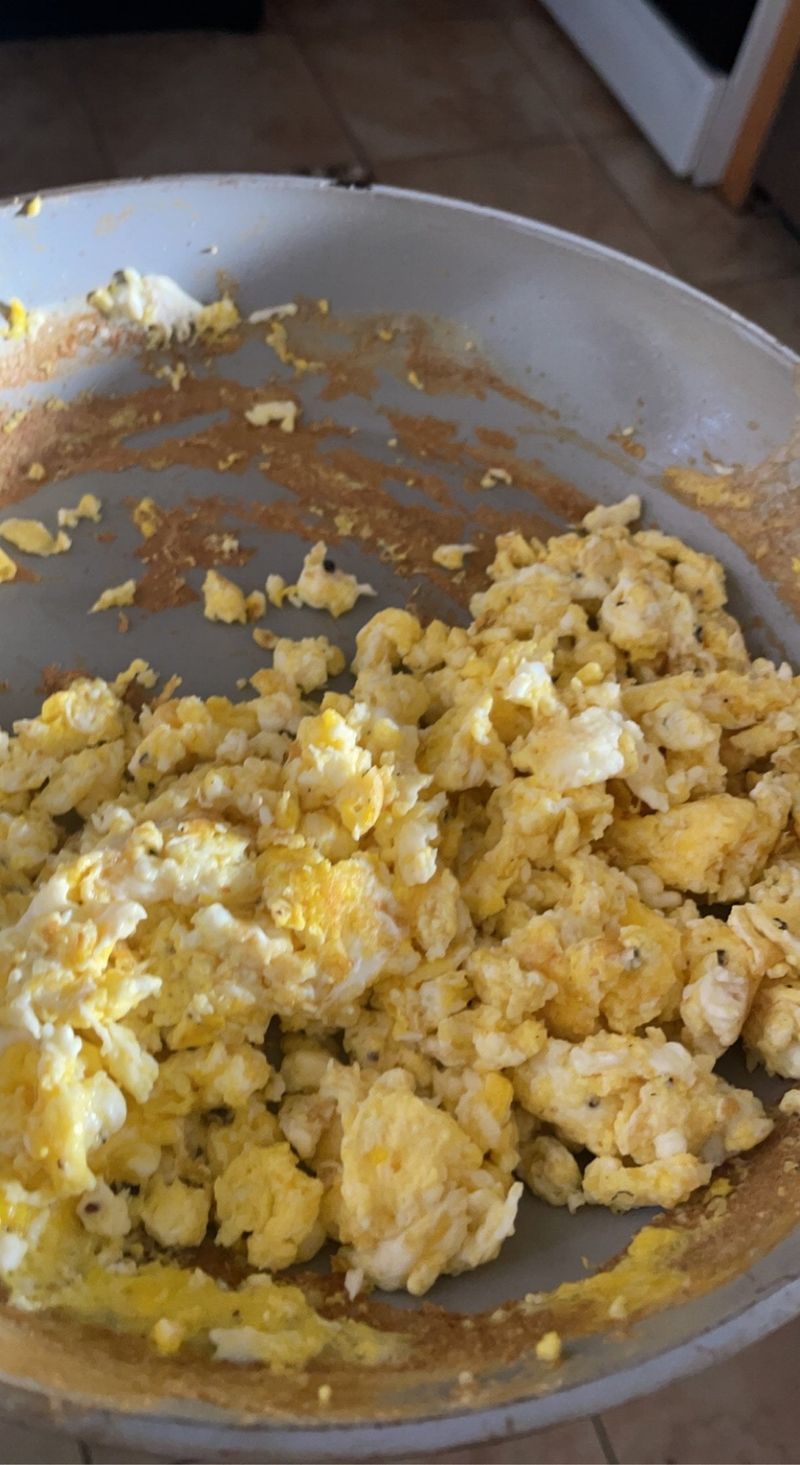
Hard-boiling past the point of no return turns fluffy eggs into dry, crumbly disappointment. Nutrients like B vitamins can degrade with excessive heat, and the taste takes a dive.
Pull them off the heat when the yolk’s still a bit jammy for better texture and nutrition.
7. Stuffing Omelets With Greasy Meats
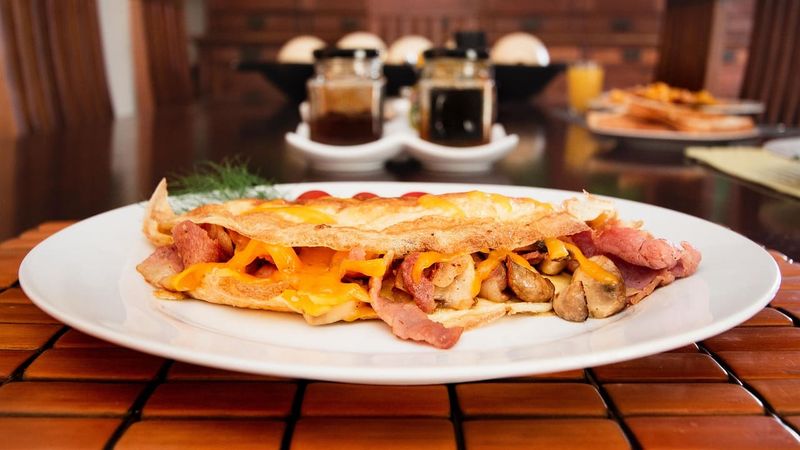
When sausage, ham, and extra bacon fill every fold, the egg’s nutrition is sidelined.
Too many processed meats bring added nitrates, salt, and saturated fat that counteract the egg’s benefits. Veggies and herbs keep things hearty without weighing you down.
8. Adding Loads Of Salt Before Cooking
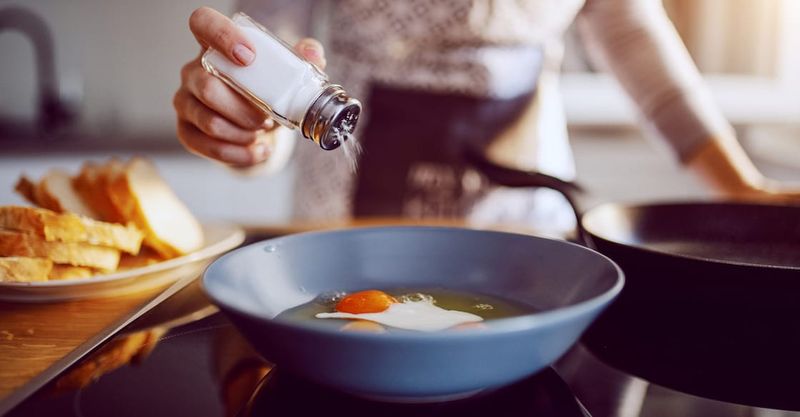
Seasoning eggs before cooking can cause them to weep and lose their texture—and that’s before the health part.
Too much sodium sneaks in early and stays in every bite. Wait to salt at the table, or try garlic powder and herbs for flavor without the bloat.
9. Using Non-Stick Sprays With Chemicals
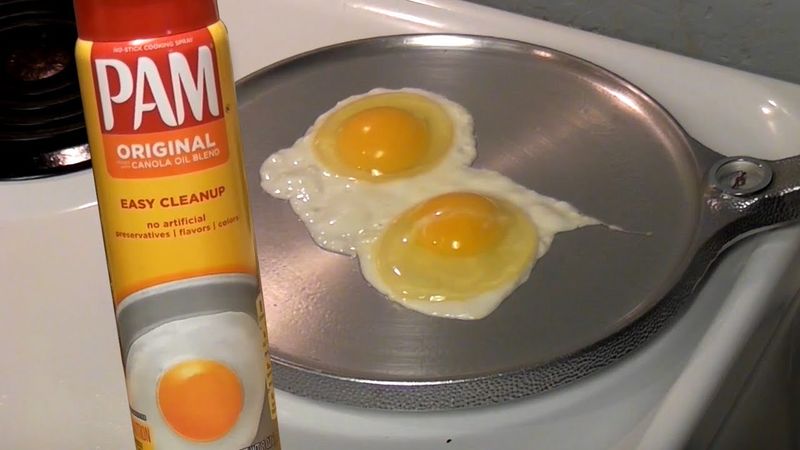
Many cooking sprays contain propellants or additives that stick around after the egg is gone.
Over time, some of these chemicals may build up in cookware or affect air quality. A dab of avocado oil or butter works just as well—and tastes better.
10. Pairing With Sugary Waffles Or Pancakes
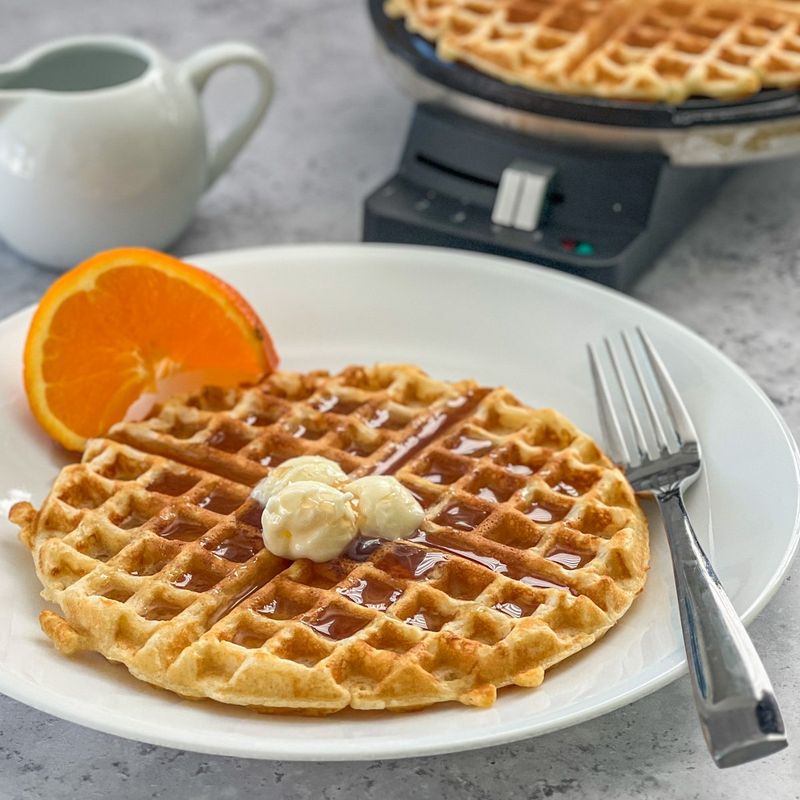
Eggs often show up next to syrup-drenched sides, and that sugar crash hits hard. The protein gets overpowered by refined carbs and sweet toppings, leading to quick energy and quicker hunger.
Swap in whole grain toast or avocado for a longer-lasting plate.
11. Turning Deviled Eggs Into Mayo Bombs
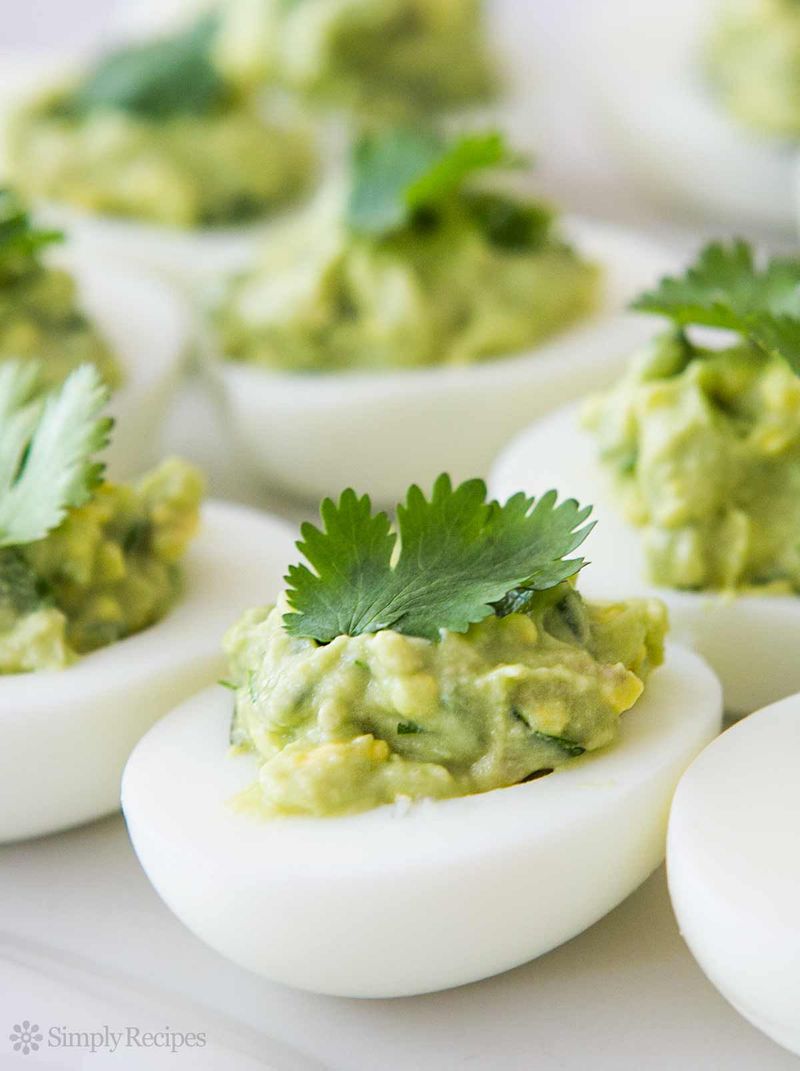
Classic picnic fare can quickly become a fat-loaded snack when mayo takes over. Some recipes call for half a jar per dozen eggs.
Use Greek yogurt for a creamy texture that still lets the egg shine through.
12. Cooking At Ultra-High Heat
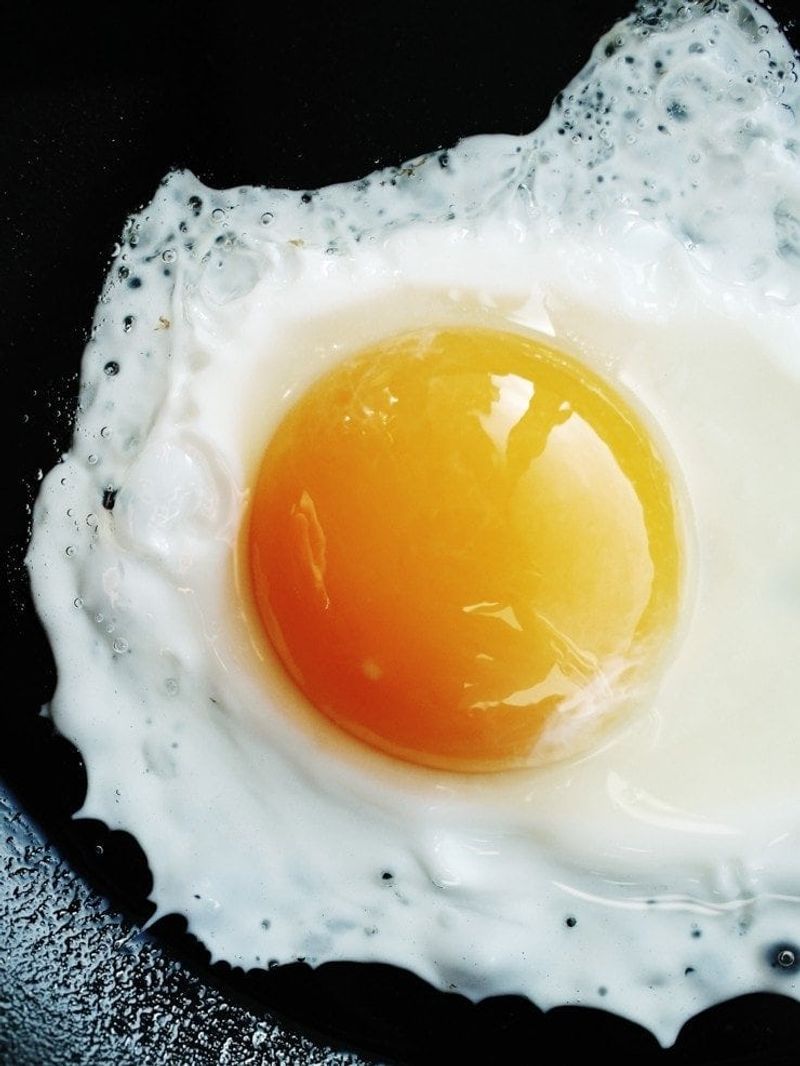
Cranking the burner makes for quick breakfasts—but risks scorching the eggs and breaking down their proteins.
Burnt bits aren’t just unpleasant—they may contain harmful compounds. A gentle medium heat lets the eggs set slowly and stay fluffy.
13. Pan-Frying With Lard
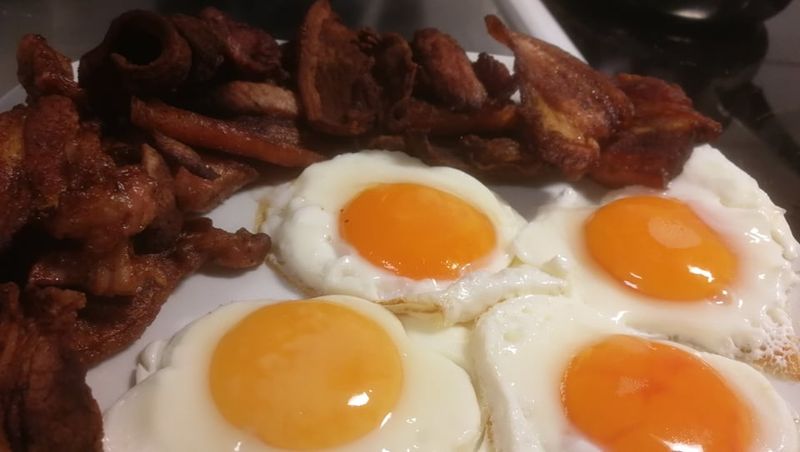
Old-fashioned lard brings bold flavor, but also loads of saturated fat and calories. The egg ends up slick and heavy, with the natural texture lost in the oil.
A ceramic or cast-iron pan with minimal fat keeps things crisp without the overload.
14. Eating Fast-Food Breakfast Sandwiches
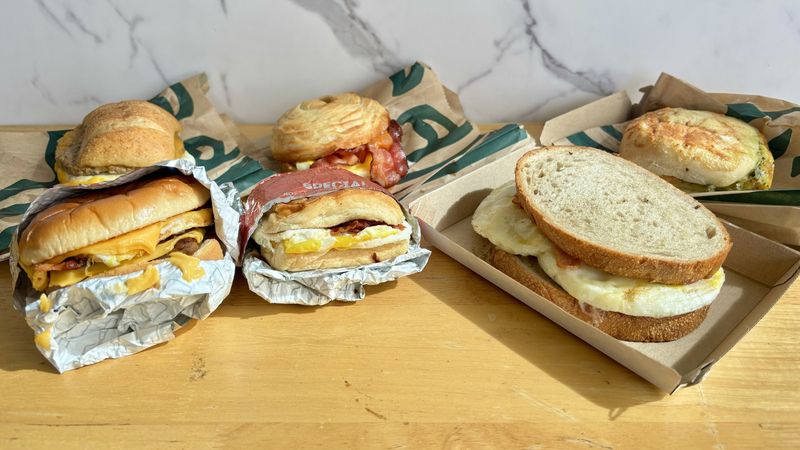
That drive-thru egg might look harmless, but it’s often more filler than nutrition. Preservatives, processed cheese, and greasy meats dominate, turning a balanced meal into a sodium trap.
Making a homemade version with whole grain bread and fresh toppings is a game-changer.
15. Reheating Eggs Multiple Times
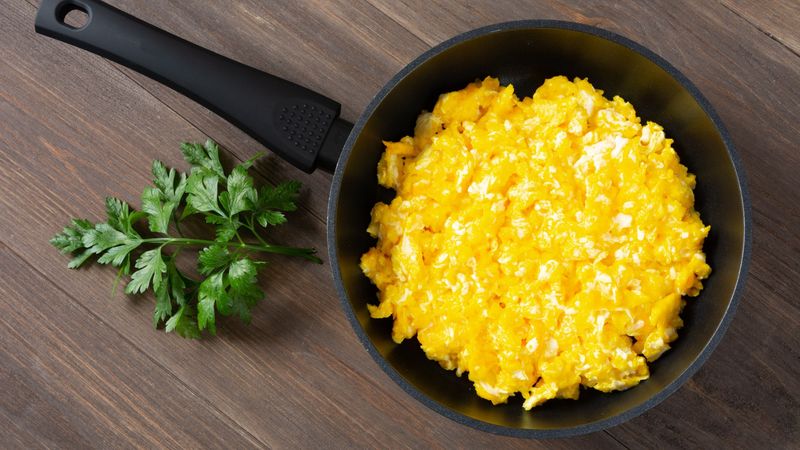
Eggs are delicate, and every trip through the microwave zaps a bit more moisture and nutrition.
Overheating can alter proteins and make them rubbery or even slightly toxic if left out too long. Cook once, eat fresh—it’s the way eggs were meant to be.
